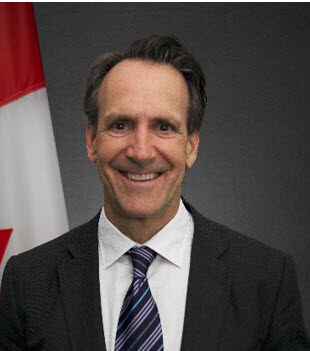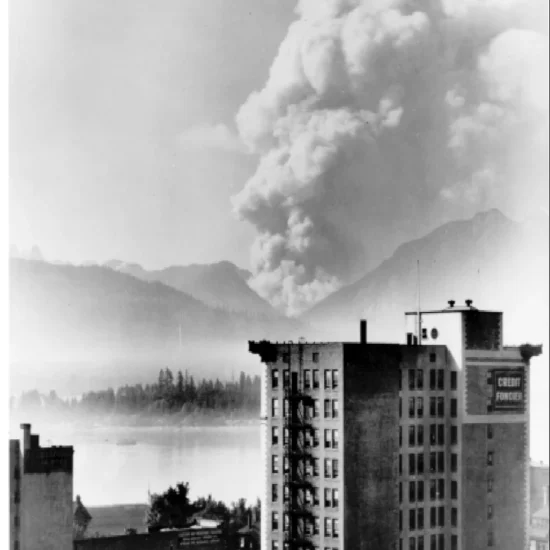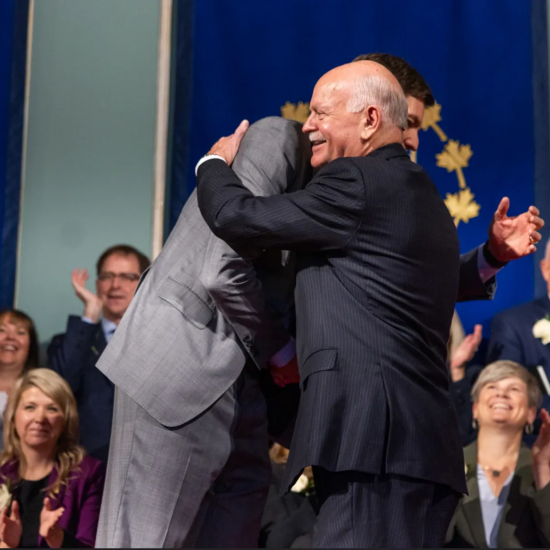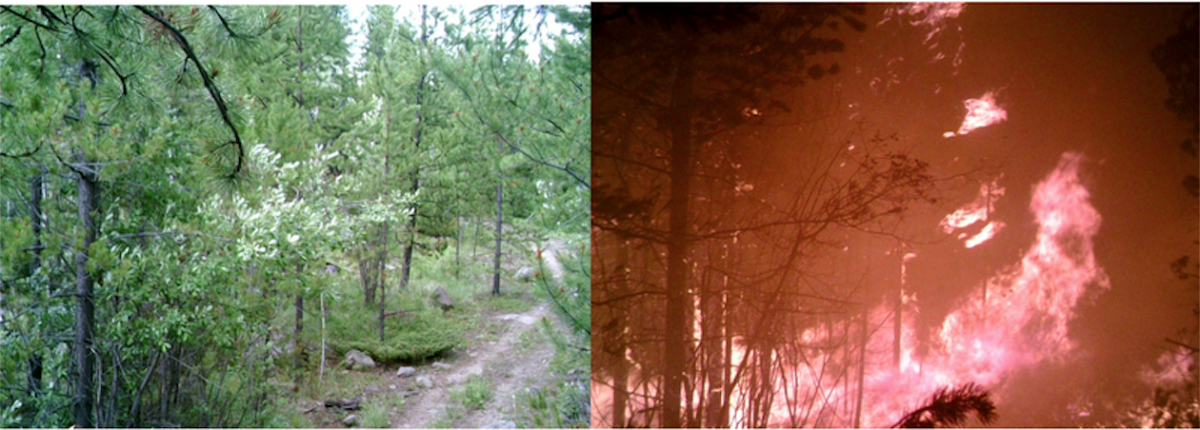
Bob Mackin
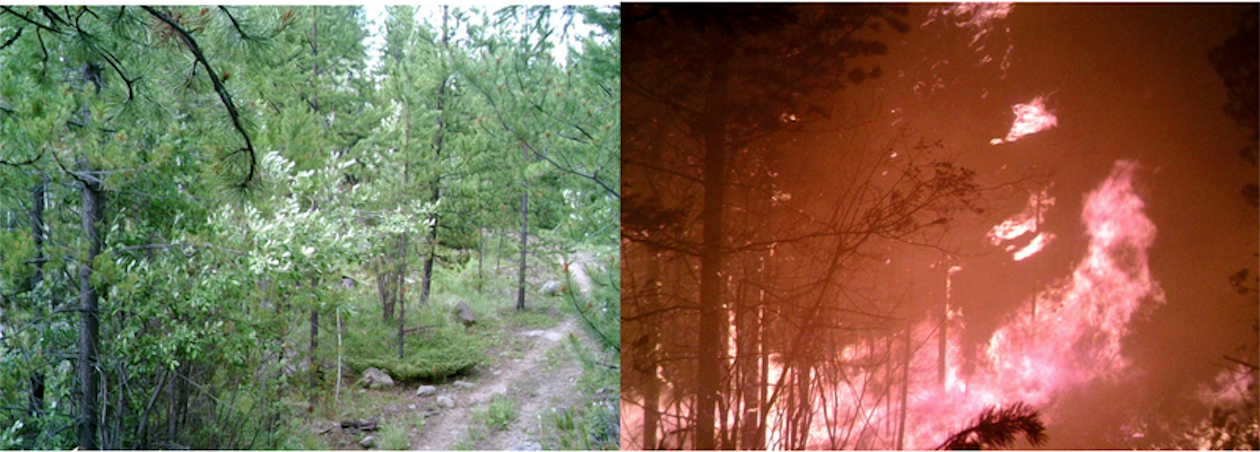
Before and during the wildfire, from the Kirsh cabin camera.
More Nazko Valley residents have serious questions about the performance of the B.C. Wildfire Service, after suffering substantial losses in the massive, half-million-hectare Plateau fire.
Earlier this week, theBreaker reported on retired teachers David and Raynelle McNab.
Their outbuildings and timber were destroyed Aug. 12 and they are demanding answers about the Coquitlam Structural Fire Protection Unit’s failure to protect their property.
Bowing to pressure from Cariboo North BC Liberal MLA Coralee Oakes and questions from theBreaker, Citizens’ Services Minister Jinny Sims stopped Information Access Operations from charging McNab $5,000 for his freedom of information request.
Now trappers Wayne and Leilah Kirsh and hunting guide Stewart Fraser are telling theBreaker about how their ordeals.
The Kirshes have 50 years of fall-to-spring trapping experience between them and 700 square miles of wildfire-ruined traplines in the Central Cariboo region. In early July, members of the Coquitlam Structural Fire Protection Unit flew to their cabin by helicopter and assessed the situation.
“They basically guaranteed that cabin would never burn with two sprinklers on there, the way it was built and everything else,” Wayne Kirsh said in a phone interview. “We went out there, every time the crew changed and made sure that they knew about it, they kept telling us yep, it’s protected, it’s protected. We weren’t allowed to go in there and go check.”
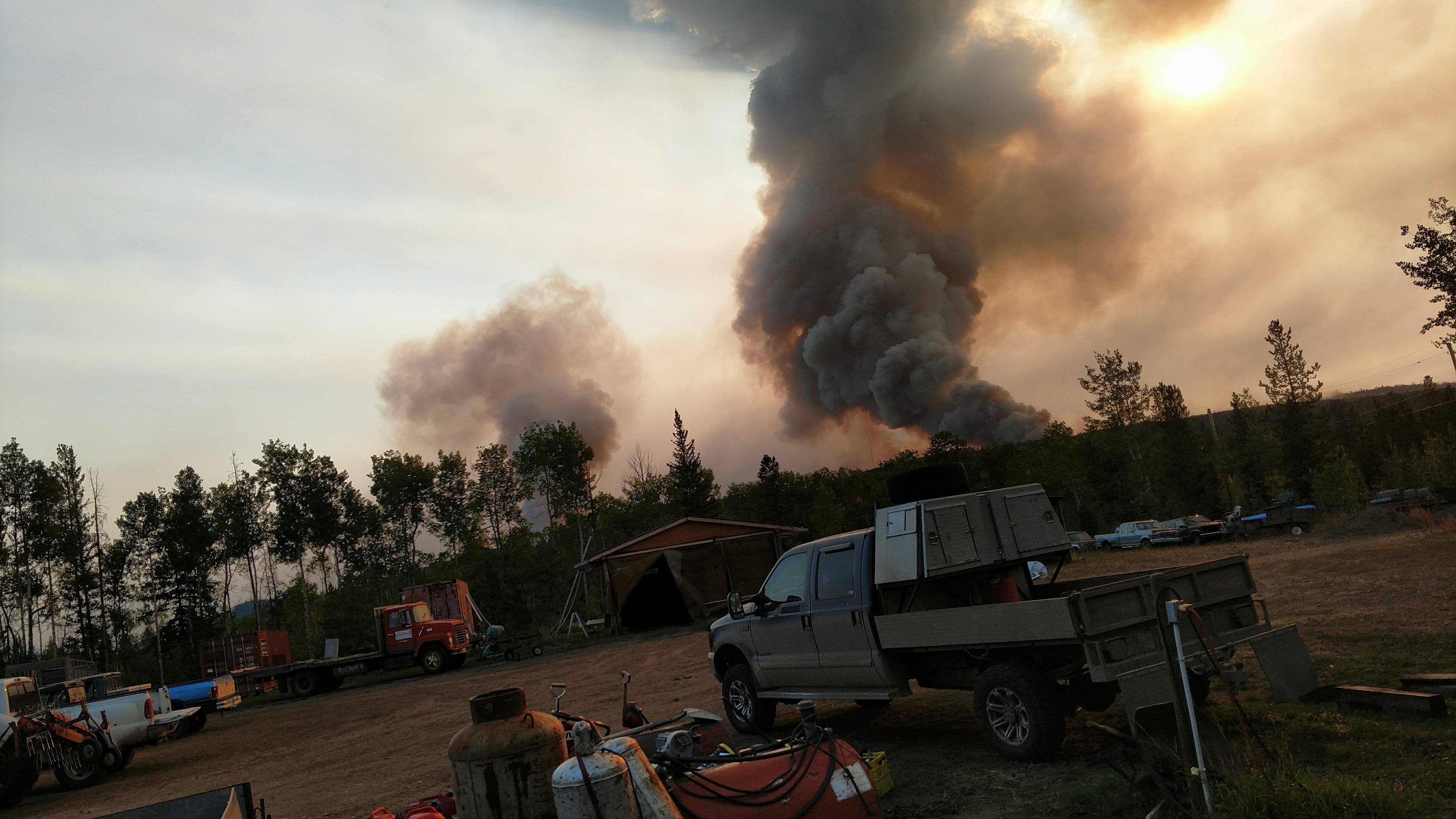
A September back-burn near Fraser’s Nazko Valley property. (Stewart Fraser)
The Kirshes, who spend summers farming cattle in Quesnel, got the call from the RCMP in early August — almost a week after the July 28 evacuation order was formally issued — forbidding them from entering the area. Fire eventually consumed the cabin on Aug. 12. and they have images of the blaze from a surveillance camera that survived the disaster.
“They had over three weeks from when [Coquitlam Structural Fire Protection Unit] went in until the fire hit,” he said. “They never did put any pump or sprinklers on it, they just decided to let it burn.”
Leilah Kirsh said the B.C. Wildfire Service didn’t attack the fire immediately in early July, but instead chose to “monitor” the fire. “That was the word they used, over and over again.”
The couple’s trapping territory is now devastated and their $20,000-a-year income is gone.
“There is no habitat left, no wildlife left. We have lost not only the traplines, but our income for the next 20 years,” Leilah Kirsh said. “We used trapping to subsidize our income over the last 20 years. It’s basically barren wasteland, not good for anything.”
The Kirsh farm is for sale. The couple originally wanted to live half the year in that cabin to tend their trapline, and travel the rest of the year.
“With us being trappers, we don’t get a lot of sympathy, a lot of people don’t like trappers, they don’t realize what good we do out there. We’re conservationists,” she said. “We’ve been able to bring up the population of fisher, of beaver, by trapping wolves out of the area. We can help increase the moose population.”
She said they helped supply small intestines and bowels from coyotes to scientists studying a deadly European strain of tapeworm three years ago. For two years, they live-trapped fishers for resettlement in Washington state, to help boost the population. The program was cancelled by the fire this year.
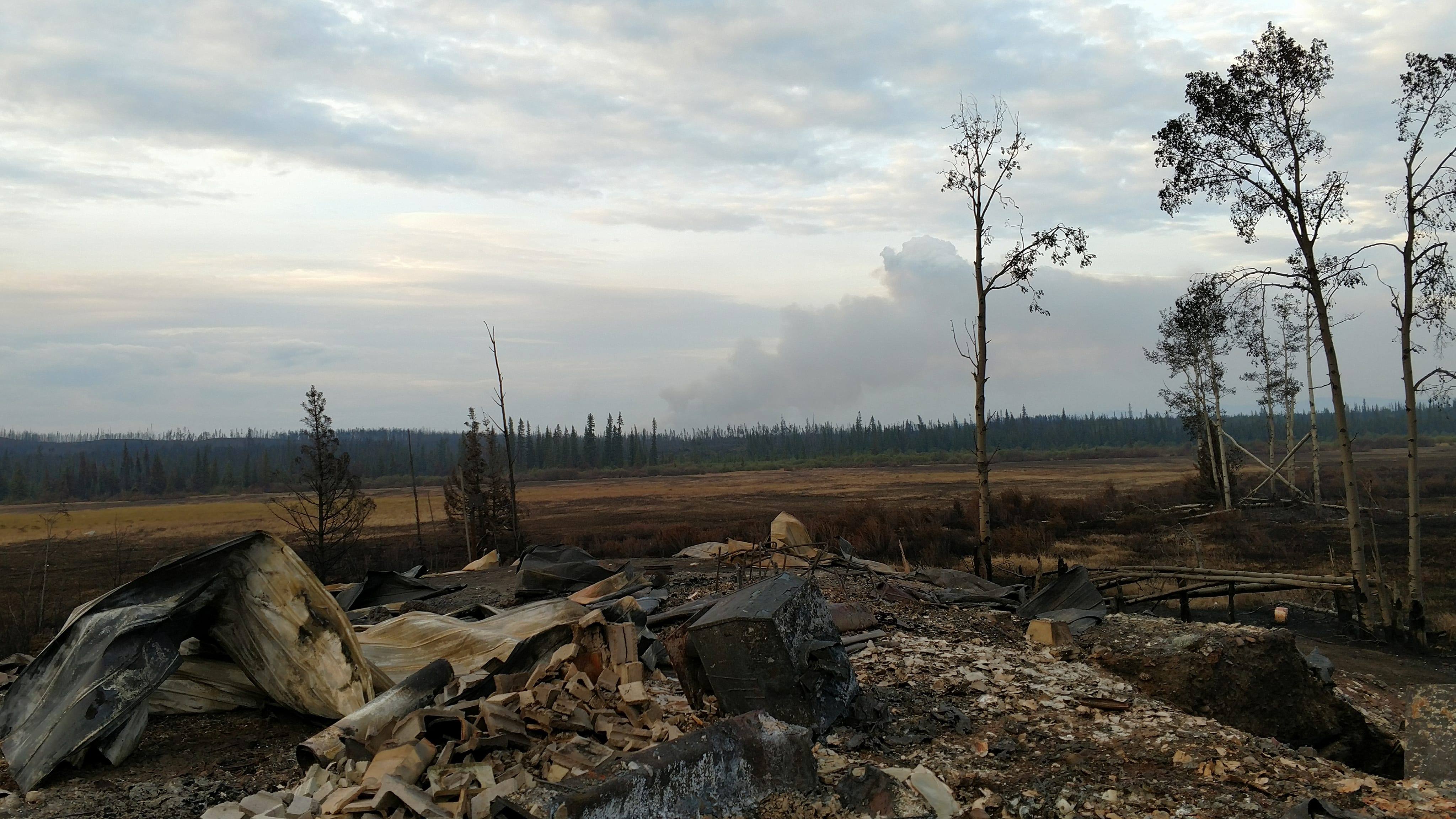
The remains of Stewart Fraser’s fire-destroyed ranch house. (Stewart Fraser)
They hope that another trapline might open up somewhere close to home, so they could resume their livelihood.
“We are extremely active people, we have a lot of motivation, we have a lot of ambition,” she said. “We feel like since this has happened, we don’t sleep well at night, our retirement dreams are gone, and you can’t replace that. We’ve been suffering insomnia, stress, stomach issues, all the lovely things that come with when you go through a tragedy like this.”
Itcha Mountain Outfitters’ proprietor Stewart Fraser said the same Coquitlam outfit originally told him it was unable to put equipment on his buildings due to lack of resources.
After he moved his horses, and evacuated his wife and son to Kelowna, Fraser got notice that Nazko was being evacuated. He said he spent $2,500 on his own sprinklers, but needed another pump. So he went to ask for one at the B.C. Wildfire Service temporary camp at the Nazko school. Fraser said he was told not to worry, because camp staff told him that “they had my place covered.”
“I said you guys put sprinklers on my ranch? He said yeah, it’s all down. Now I’ve got all this stuff I can use on my other place.”
After the fire roared through and Fraser was able to return, “we went and looked, there was no evidence of anything, no sprinklers on the building.” He lost the buildings on his ranch and 40% of his vast, regional guiding territory.
“I won’t trust the Cariboo Fire Centre or B.C. Wildfire people again,” Fraser said. “We buy the tenures in good faith hoping the government will look after them in good faith, and they let it burn.”
At least US$100,000 in annual guiding revenue is gone. He said his number one question is why the fire wasn’t fought the day it started, July 7.
“Somebody in the Cariboo Fire Centre made the decision to not fight the fire,” Fraser said. “It burned for two weeks before anything was done, then it burned out of control.”
The Ministry of Forests, Lands and Natural Resource Operations did not respond for comment about the destruction suffered by the Kirshes and Fraser.
When asked earlier about what happened to the McNabs’ property, ministry spokeswoman Vivian Thomas said “because the B.C. Wildfire Service is currently investigating these issues, no one is available to provide further comment at this time.”






